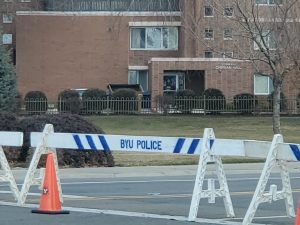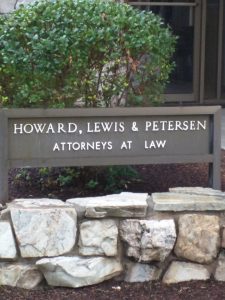



 As a general rule, you should not give a police interview without a Utah criminal defense attorney present. You should exercise your Utah and Federal Constitutional rights to counsel and to remain silent.
As a general rule, you should not give a police interview without a Utah criminal defense attorney present. You should exercise your Utah and Federal Constitutional rights to counsel and to remain silent.
99 percent of people interviewed by police don’t do themselves any favors.
To exercise your right to an attorney, or to remain silent, all you have to do is tell the police just that. Nothing special in how you request your right to remain silent, except being express and specific that you don’t want to talk and you want your attorney present.
Utah Constitution. Article I, Section 12 [Rights of accused persons.]
It is worth quoting the Utah Constitution where your right to counsel and to remain silent exists.
“In criminal prosecutions the accused shall have the right to appear and defend in person and by counsel, to demand the nature and cause of the accusation, to have a copy thereof, to testify in the accused’s own behalf, to be confronted by the witnesses against the accused, to have compulsory process to compel the attendance of witnesses in the accused’s own behalf, to have a speedy public trial by an impartial jury of the county or district in which the offense is alleged to have been committed, and the right to appeal in all cases. In no instance shall any accused person, before final judgment, be compelled to advance money or fees to secure the rights herein guaranteed. The accused shall not be compelled to give evidence against himself or herself; a person shall not be compelled to testify against the person’s spouse, nor shall any person be twice put in jeopardy for the same offense.
. . . .
United States Constitution. 5th Amendment. (Right to Remain Silent)
“No person shall be held to answer for a capital, or otherwise infamous crime, unless on a presentment or indictment of a Grand Jury, except in cases arising in the land or naval forces, or in the Militia, when in actual service in time of War or public danger; nor shall any person be subject for the same offence to be twice put in jeopardy of life or limb; nor shall be compelled in any criminal case to be a witness against himself, nor be deprived of life, liberty, or property, without due process of law; nor shall private property be taken for public use, without just compensation.”
United States Constitution. 6th Amendment. (Right to Counsel)
“In all criminal prosecutions, the accused shall enjoy the right to a speedy and public trial, by an impartial jury of the State and district wherein the crime shall have been committed, which district shall have been previously ascertained by law, and to be informed of the nature and cause of the accusation; to be confronted with the witnesses against him; to have compulsory process for obtaining witnesses in his favor, and to have the Assistance of Counsel for his defence.”
Why Would the Police be Calling You?
 The police are busy people. The only reason the police are calling you is because they need something, or you are under investigation. You need to assert your constitutional rights to remain silent. You are not going to outsmart on a moment’s notice the police.
The police are busy people. The only reason the police are calling you is because they need something, or you are under investigation. You need to assert your constitutional rights to remain silent. You are not going to outsmart on a moment’s notice the police.
By the time the police are interviewing you, they have already interviewed all other material witnesses. They have reviewed the bulk of the evidence and witnesses prior to contacting you. This way they can ask you questions that they already know the answers to see how honest you are being. The investigators have the upper hand.
There is nothing disrespectful about exercising your constitutional rights to remain silent or have your attorney present. The fact that you remained silent or that you exercised your rights can’t be used against you in subsequent court proceedings. The police officer can’t testify in court that you were being arrested and that you asserted your right to remain silent.
TO DOs
–Be respectful, even if the police are agitated. They do have a hard job.
–Assert your right to remain silent. Just tell the interrogators that you have nothing to say and wish to have your attorney present.
–Tell them you want your attorney present.
When you hire a Utah attorney, they can call the police and ask that the police not to contact you anymore. For that investigation, after being put on notice that you are asserting your constitutional rights, the police can’t contact you anymore under the Utah and Federal Constitutional law. If after discussions and analysis with your attorney, then you can coordinate an interview with the police–if at all.